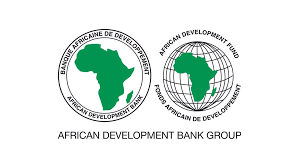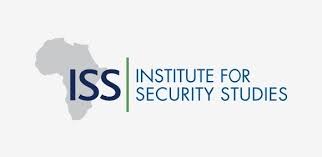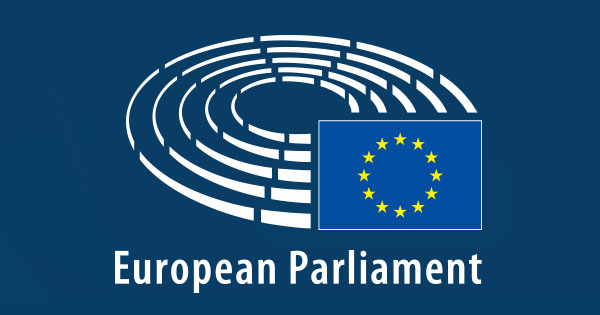Food and Nutrition Crisis 2020, Analyses & Response

Promoting dialogue and co-ordination, building a coherent and shared understanding of the food and nutrition situation, and nurturing decision-making: these objectives have been at the heart of the Food Crisis Prevention Network’s (RPCA) mission for over 35 years. Created in 1984, the RPCA is an international network for co-operation and co-ordination under the political leadership of the Commissions of the Economic Community of West African States (ECOWAS) and the WestAfrican Economic and Monetary Union (UEMOA). Co-ordinated jointly by the Permanent Inter-State Committee for Drought Control in the Sahel (CILSS) and the Sahel and West Africa Club Secretariat (SWAC/OECD), the RPCA brings together more than 100 key stakeholders: representatives of Sahelian and West African countries, regional organisations, regional and international information systems, bilateral and multilateral co-operation agencies, humanitarian agencies and international NGOs, agricultural professional organisations, civil society and the private sector.
Bénin : dans la Vallée de l’Ouémé, au sud-est du pays, la Banque africaine de développement accompagne la productivité et l’accroissement des filières agricoles porteuses

Plus de cinq ans après son lancement en 2014, le Projet d’appui aux infrastructures agricoles dans la Vallée de l’Ouémé (PAIA–VO), dans le sud-est du Bénin, contribue à l’accroissement durable de la productivité et des productions végétales par la promotion des filières porteuses, indique un rapport de la Banque africaine de développement rendu public le 2 novembre dernier.
Le projet, qui répond à la stratégie de la Banque visant à réduire la pauvreté et à améliorer la sécurité alimentaire au Bénin, a été financé à hauteur de 67,19 millions de dollars américains par l’institution. Ce financement comprend un prêt d’un montant équivalant à 59,20 millions de dollars et un don d’un montant équivalant à 794 000 dollars du Fonds africain de développement (FAD) ainsi qu’un don de 7,2 millions de dollars issu du Fonds pour l’environnement mondial (FEM).
La mise en œuvre du projet a déjà permis la réalisation de 200 kilomètres de linéaire de pistes, ainsi que trois kilomètres et demi de linéaire de digues-pistes, la construction de quatre marchés modernisés et 46 magasins de stockage, l’aménagement de 110 hectares de superficies de planches surélevées, et un emblavement de 1070 hectares. Par ailleurs, le PAIA–VO a apporté son soutien à 155 femmes maraîchères, permis l’encadrement de 5302 agriculteurs et formé 139 comités. Il a aussi fourni à tous les bénéficiaires 407 tonnes de semences.
Annual Development Effectiveness Review

Each year, the Annual Development Effectiveness Review (ADER) assesses Africa’s development and the contribution that the African Development Bank (Bank) has made. The ADER is vital to the Bank’s reflection on its achievements and areas where it can improve its performance. This reflection is all the more vital this year, as the Bank reorients its operations to respond to the Covid-19 pandemic. The crisis requires us to ensure we use our resources and expertise more effectively than ever.
The ADER assesses progress against the Bank’s Results Measurement Framework (RMF) for 2016–2025. It monitors the contribution of our activities to our High 5s — Light up and Power Africa, Feed Africa, Industrialise Africa, Integrate Africa,and Improve the Quality of Life for the People of Africa — to our cross-cutting priorities, and to our long-term goals of promoting inclusive growth and green growth. The ADER also measures the progress we have made on strengthening our portfolio and reforming our internal systems and processes, to position us to deliver better development results for Africa.
COVID-19 emergency response - Africa Region situation report #14, 16 November, 2020

Situation Overview
Increasing vulnerabilities and worsening humanitarian needs due to lockdowns have devastated livelihoods. UNOCHA’s humanitarian response plans are showing a higher number of people in need (10% higher than this time last year, which equates to 48.9 million in East Africa, 45 million in Southern Africa, and 44.7 million in West Africa).
Prolonged school closures have negatively affected children’s learning and led to higher teenage pregnancy rates. According to a recent World Vision study, as many as 1 million girls may be blocked from returning to school across sub-Saharan Africa.
Reduced funding commitments and COVID-19 lockdowns have increased vulnerabilities amongst forced migration populations (i.e. internally displaced persons and refugees) and migrant workers across east, west, and southern regions. In East Africa, for example, the World Food Programme has reduced food rations for refugees.
Reports indicate that gender-based violence and mental health challenges are also increasing due to lockdowns and lost livelihoods.
Peace & Security Council Report

Will Africa adapt its counter-terrorism operations to changing realities?
Election observation put to a test as African borders slowly re-open Presidential power play undermines democracy in Africa
Ghana’s Western Togoland crisis and Africa’s unanswered secession questions EU–Africa negotiations: can Africa speak with one voice?
Will Africa adapt its counter-terrorism operations to changing realities? […]
The African Digital BankingTransformation Report 2020 Building a digital-first bank

The Digital Banking Report is an initiative by African Banker magazine and Backbase that aims to provide a clear road-map for digital transformation across the banking sector in Africa. The speed at which banks are embracing the po- tential offered by technological changevaries considerably but there appears to be only one direction of travel. It is inconceivable to imagine a bank in a decade’s time where the lion’s share of transactions are not carried out on a digital platform, with time and money savings for both the bank and customer involved.
The number of Africans with bank accounts increased from 170m in 2012 to nearly 300m in 2017 and is forecast to reach 450m by 2022, according to consultants McKinsey. However, most Africans do not have access to tradi- tional banks and the number of bank branches has not changed on the conti- nent over the past five years, so access to physical branches is not improving. […]
Multilateral Development Finance 2020

As the “Decade of Action” begins, the world needs an effective multilateral development finance system to deliver on the promises of the 2030 Agenda and support the recovery of developing countries from the coronavirus (COVID-19) crisis. Even before the crisis, the system, torn between high expectations and growing criticism of its perceived lack of accountability and effectiveness, was showing signs of stress. This report looks at recent trends in the multilateral development system in order to provide the clearest possible picture to those deciding on its future. It presents the evolution of multilateral inflows and outflows, and analyses the strategic implications of the contributions by members of the Development Assistance Committee (DAC). The report looks at the activities that multilateral organisations finance, and explores their respective strengths. This year’s edition is supplemented by a series of policy briefs, as well as online statistics on DAC members’ multilateral contributions, available in the Development Co-operation Profiles.
Amending the European Fund for Sustainable Development

The EU is in the process of adapting its budgetary instruments to respond to the consequences of the coronavirus crisis, in particular in raising the established ceilings for some financial instruments. The proposed adjustments include, among other things, measures aimed at helping the most fragile third countries recover from the consequences of the pandemic. In particular, on 28 May 2020, the European Commission put forward a proposal concerning the European Fund for Sustainable Development (EFSD) in order to expand its coverage and raise the funds dedicated to leverage private investment for sustainable development and the guarantees to de-risk such investment. On 21 July 2020, the European Council rejected the draft amending budget that would have provided increased EFSD funding for the current year.
European Council conclusions, 15-16 October 2020

On 15 and 16 October 2020, the European Council adopted conclusions on COVID-19, EU-UK relations, climate change and external relations.
EU trade policy for sustainable food systems

The European Union (EU) has committed to supporting the global transition to more sustainable food systems. As
the world’s largest food importer, the EU can use its trade policies and agreements to stimulate and incentivise more sustainable practices by its trade partners. In this brief, we provide specific recommendations on how the EU can do so.
Building on lessons from existing initiatives, the EU should adopt sector-specific regulations and sustainability standards to promote imports of sustainable food, and restrict the import of illegally or unsustainably manufactured products. Further, real change can only be achieved if the EU makes sustainable food systems an explicit objective of its free trade agreements, negotiates relevant sustainability provisions in these agreements and monitors efficiently the impact of these provisions on food systems. At the multilateral level, the World Trade Organization and the upcoming 2021 Food Systems Summit can be good platforms for the EU to build alliances with like-minded countries to push for global trade rules that promote sustainable food systems. […]




